This Update Is Not Applicable to Your Computer Windows 10/8/7
“I reformatted a few weeks ago and today I remembered some updates failed (15 to be exact). So I tried to download the updates that didn’t install manually and it gave me “updates not applicable to your computer” message for every single one of them.”BleepingComputer
Update is one of integrate parts of the Windows operating system. Without the installation of these updates, your computer will not perform up to its potential.
However, a number of users are reporting that they are troubled by an error message reading “the update is not applicable to your computer” when they try to install an update in Windows 10/8/7, just like the real example above from one forum.
Actually, it is a quite common issue if you install Windows 7 KB2999226, KB3033929, KB4012212, etc. or a certain KB update of Windows 10. In addition to Windows systems, some users say they also encounter inapplicable update error in Windows Server 2008 R2, Windows Server 2016, etc.
Well then, what problem can cause the error? In general, the error can be caused by unmatched update package, update already installed, Windows Updater problem, the recent update not installed, corrupted system files, etc.
Are you also bothered by this issue? If so, here is how you can fix the error Windows Standalone Installer not applicable.
Fixes for the Update Is Not Applicable to Your Computer Windows 7/8/10
As to the issue fix, we will offer you 9 possible solutions. Just try them one by one to get out of trouble.
Way 1: Check If the Update Package Matches Your Windows Version and Processor Architecture
Sometimes the update you are trying to install is not compatible with your system and your processor architecture. Thus, the first thing you need to do is to make sure the update matches your system specs.
You can go to Microsoft Update Catalog and then search for the name of the update you are installing in the search box on this website. If it is compatible with your Windows, the next step you need to do is to ensure you have compatible processor architecture to install the update.
Step 1: In Windows 10/8/7, right-click on This PC or Computer, and choose the Properties option.
Step 2: In the System interface, you can see the architecture of your Windows and your processor next to System type.
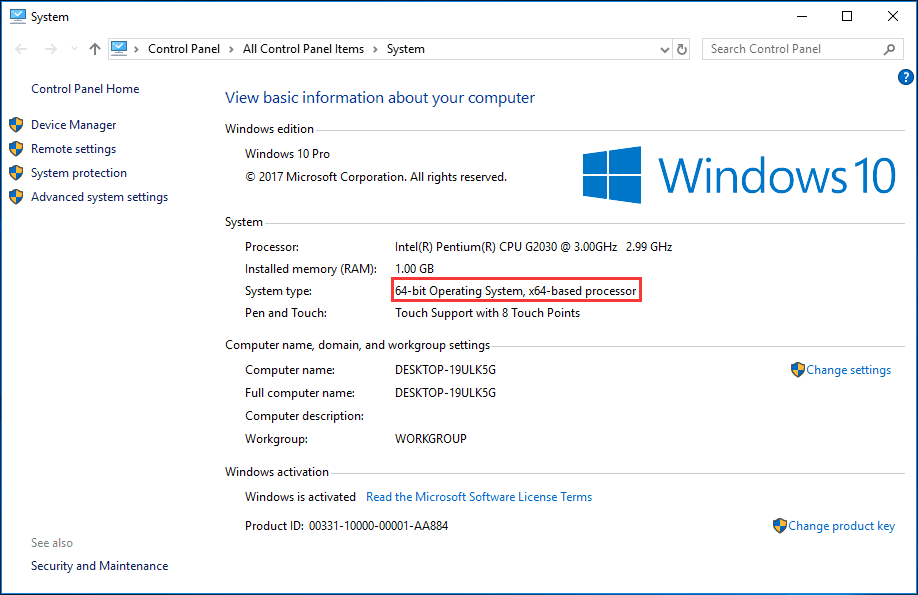
If the system type is 64-bit Operating System and x64-based processor, you cannot install x86-based Windows and vice versa.
Way 2: Check the Update History
If the update is compatible with your processor but Windows Update Standalone Installer error with inapplicable update appears, maybe the update you are trying to install has already been installed to your computer. And you can check it in the update history.
In Windows 7, click the Start button to click Control Panel. Then, go to Windows Update > View upgrade history. In Windows 10, go to Settings > System & security > Windows update > Update history.
Here, you need to match the code of each update in history with the update that you try to install and see if it is already installed on your PC. If no, proceed to the next solution.
Way 3: Check If a Prerequisite Update Is Missing
There is another thing you should do which is to check if a prerequisite update is missing. According to Microsoft, some updates need a prerequisite update before they can be applied to a system. Or else, Windows Update Standalone Installer not applicable will appear.
For instance, if the error message happens on Windows 8.1 or Windows Server 2012 R2, you have to install the April 2014 update KB 2919355 as a prerequisite and one or more pre-requisite servicing updates (KB 2919442 and KB 3173424).
To check whether you have installed these prerequisite updates, you can run the following PowerShell command:
get-hotfix KB3173424,KB2919355,KB2919442
If these updates have been installed, the command will return the installed date in the InstalledOn section of the output. This way is given by Microsoft.
Way 4: Run Windows Update Troubleshooter
You know, Windows has a variety of troubleshooters. And if there is a problem related to Windows Updater, it may cause the problem of not install. To fix this issue, you can run Windows Update Troubleshooter to solve the issue.
Step 1: Take Windows 10 as an example. Type Troubleshoot in the search box and click the program in the search box to run it. Or go to Settings > System & security > Troubleshoot.
Step 2: Go to the Get up and running section to find Windows Update, click it to choose Run the troubleshooter to start the process.
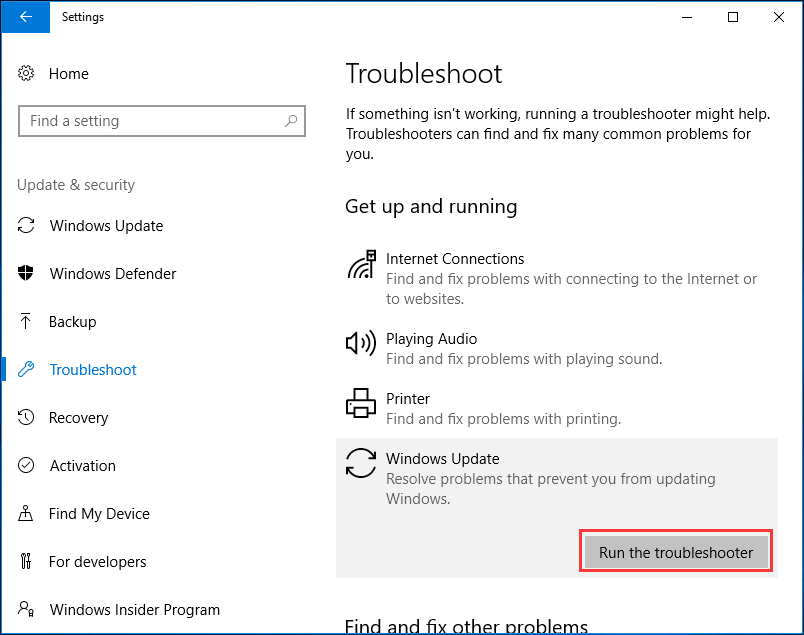
Step 3: Then the process will begin. This may take a while to diagnose the problem with Windows Update, just wait patiently until it completes. If some errors are found, click Apply repairs automatically to fix them.
Way 5: Install the Recent KB Update
If you haven’t installed the most recent KB update, you can consider installing that first to fix the error the update is not applicable to your computer in Windows 10/8/7.
Move 1: Back up Files before Windows Update
To back up files or folders well, you can use MiniTool ShadowMaker, a piece of professional PC backup software. It allows you to create a backup image for your important files. Additionally, it can also sync files or folders to one or more locations. Now, get the Trial Edition from the following button to have a 30-day free trial.
MiniTool ShadowMaker TrialClick to Download100%Clean & Safe
Step 1: Run MiniTool ShadowMaker to start file backup.
Step 2: Click the Backup feature in the toolbar, and go to SOURCE > Folders and Files to choose what you want to back up.
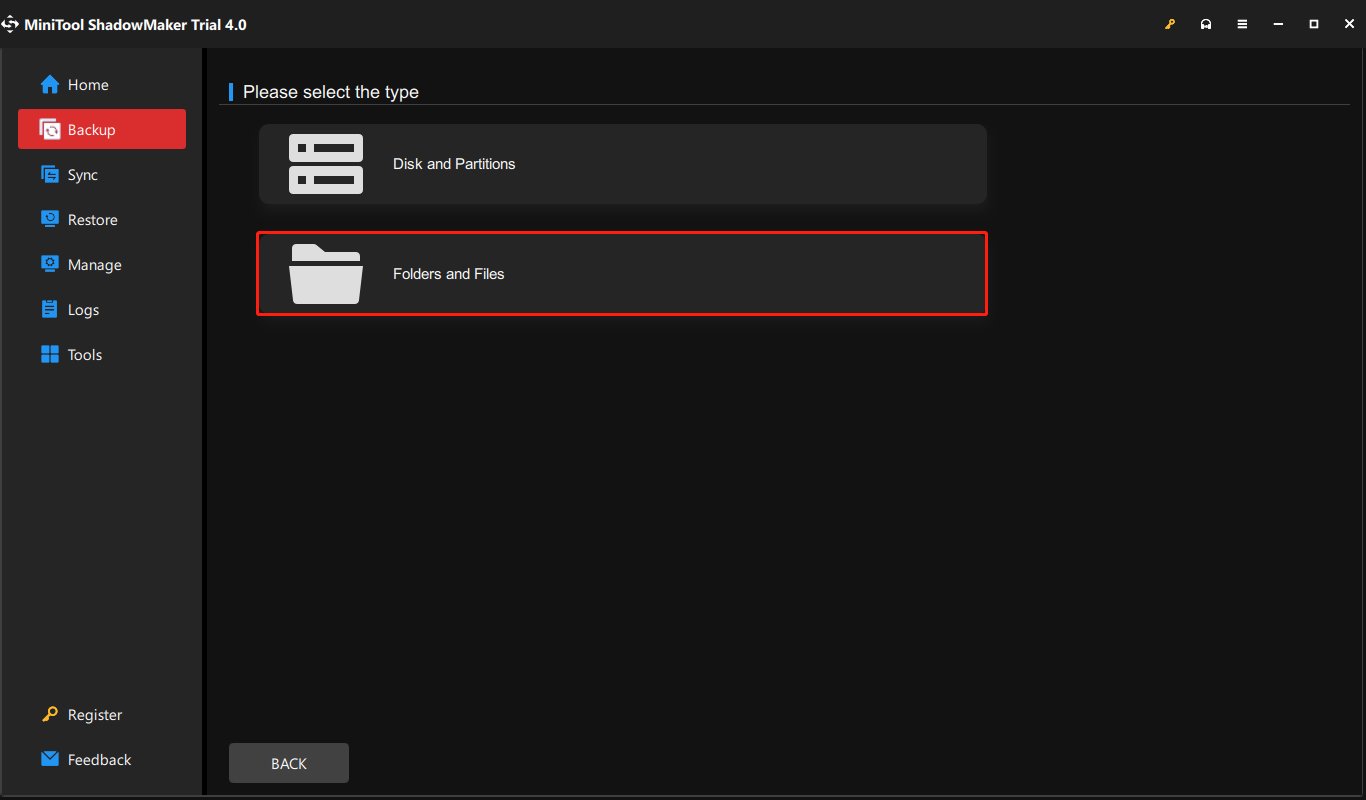
Next, go to DESTINATION to choose a partition on your USB drive, external hard drive, or internal hard drive to save the backup file.
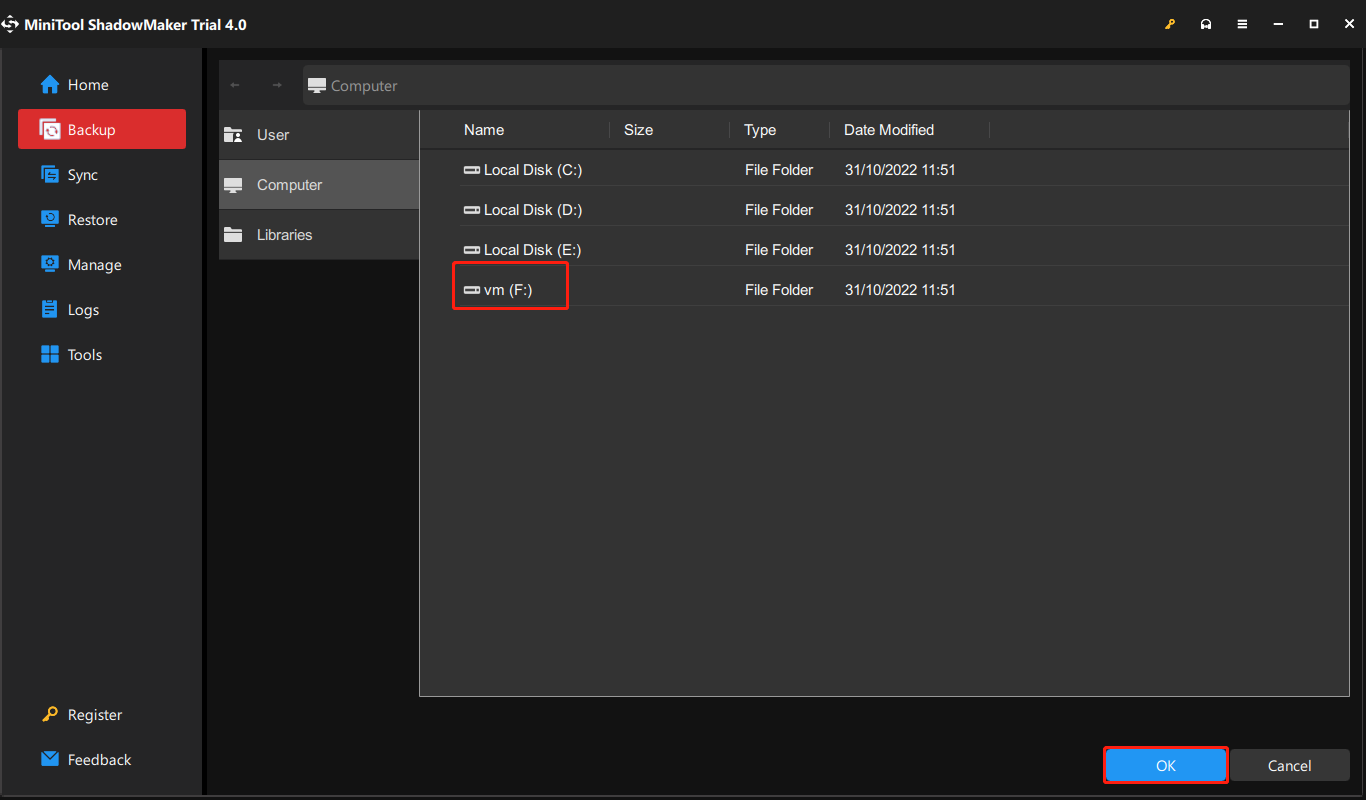
Step 3: Finally, start to execute the file backup by hitting the Back Up Now button.
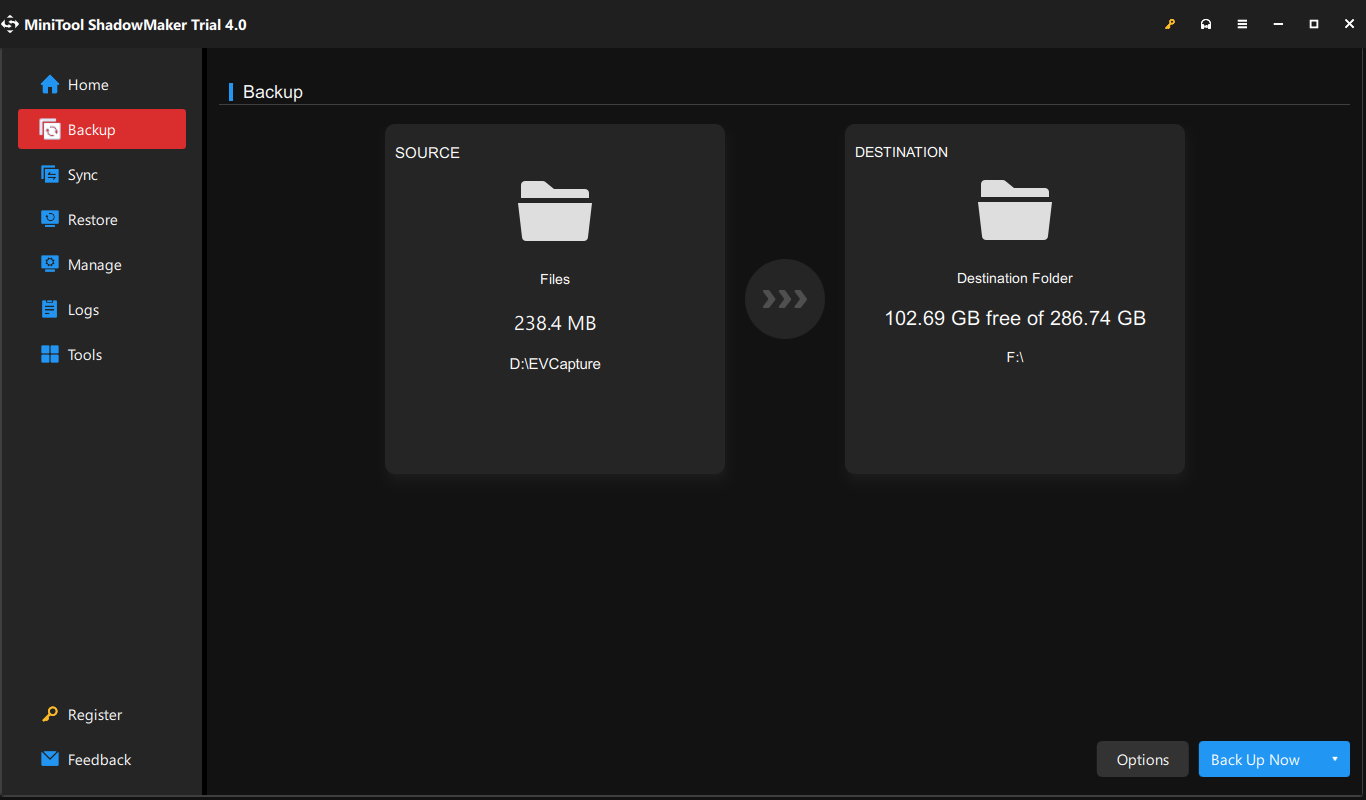
In addition, you can also take full advantage of its Sync feature to sync your files for backup. This way, it allows you to directly view the synchronized files in the destination folder.
Move 2: Start to Install the Latest KB Update
After finishing a backup, now you can install the recent KB update to fix Windows Standalone Installer not applicable issue.
Step 1: If you are facing the update is not applicable to your computer Windows 10 1709, go to this web page, then you can see a list of Windows 10 KB updates in the left panel. Just find the recent KB update that is usually at the top of the list on that page and note down the KB number.
Step 2: Open Microsoft Update Catalog site (mentioned in way 1), and input the KB number into the search box.
Step 3: Choose a proper one based on your OS and click Download to save it to your PC. Later, install it on your computer to help you out.

Way 6: Run DISM and SFC Tools via CMD
DISM and SFC are the file scan tools which can be run via command prompt in Windows. With them, you can scan the integrity of system files and the registry files.
You know, any error in these files can cause a Windows Update issue, like Windows Update Standalone Installer error with the inapplicable update. Thus, running these two tools can feasibly fix update errors.
Step 1: In the Windows search box, type cmd and run it with administrative privilege.
Step 2: Enter DISM /Online /Cleanup-Image /RestoreHealth and press Enter on the keyboard.
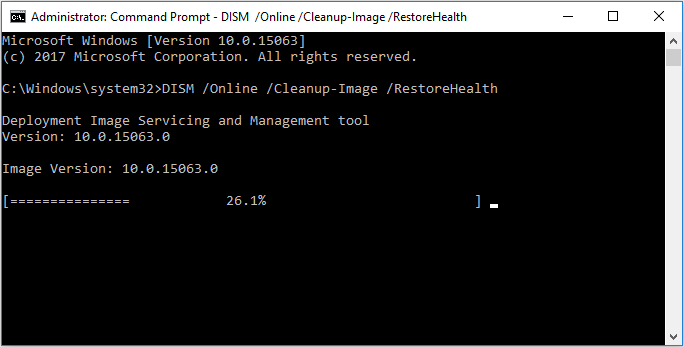
Step 3: After DISM is done, input sfc /scannow command line and hit Enter.
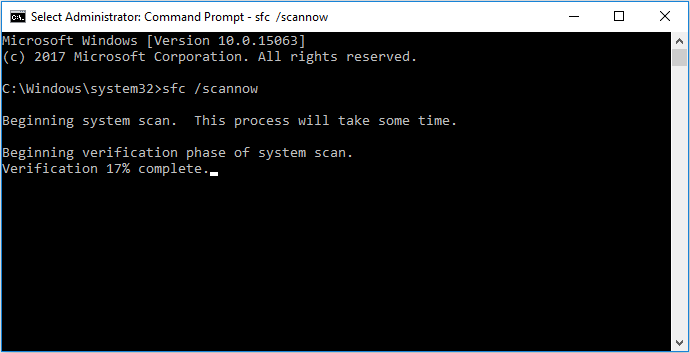
Later, close command prompt, restart your PC after SFC scan is completed and install the Windows update again.
Way 7: Set the System Locale to English
According to users, if you are unable to install certain updates with this Update is not applicable to your computer error message, changing your system locale to English should be a suggestion. If it is not set to English, the issue will appear in Windows 10/8/7.
To do that, follow the instructions below:
Step 1: Go to Control Panel, Region and Language (Windows 7) or Lock, Language, and Region (Windows 10) and click the Region section.
Step 2: In the Region window, set the format to English (United States) under the Formats tab.
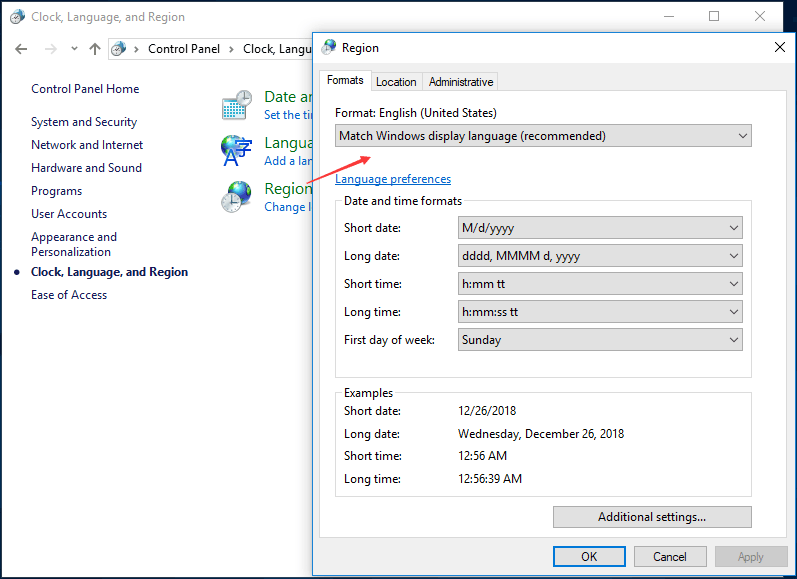
Step 3: Go to the Administrative tab, click Change system locale and set the Current system locale to English (United States).
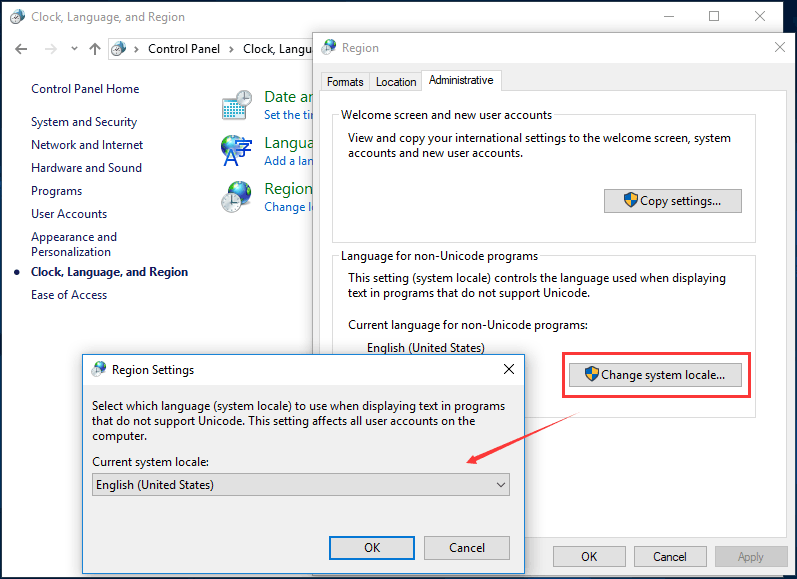
After that, try to install your Windows update again. You can revert the locale settings to the desired value.
Way 8: Perform a System Restore
If you fail to fix “the update is not applicable to your computer Windows 10/8/7”, you can try to restore your computer to a previous state via a restore point. However, this way requires a premise which is that you have created a system restore point in advance.
Step 1: Type create a restore point in the search box and click the result to open the System Properties window.
Step 2: Under the System Protection tab, click System Restore.
Step 3: Choose a restore point to start system restore.
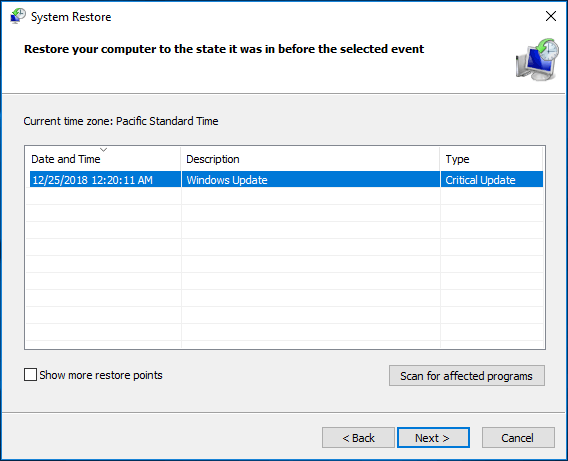
Way 9: Perform an In-place Upgrade
If you can’t install Windows update with this update is not applicable to your computer error, the last thing you can try is to use Windows Media Creation Tool to troubleshoot the issue. This tool allows you to either install a fresh copy of Windows or upgrade it.
Step 1: To perform an in-place upgrade, download Media Creation Tool.
Step 2: Once this tool is open, choose Upgrade this PC now.
Step 3: Windows setup will take a while to start preparing and download needed updates.
Step 4: Once it is ready, click the Change what to keep option in the Ready to install screen. Then, click Keep personal files, apps and Windows settings to continue.
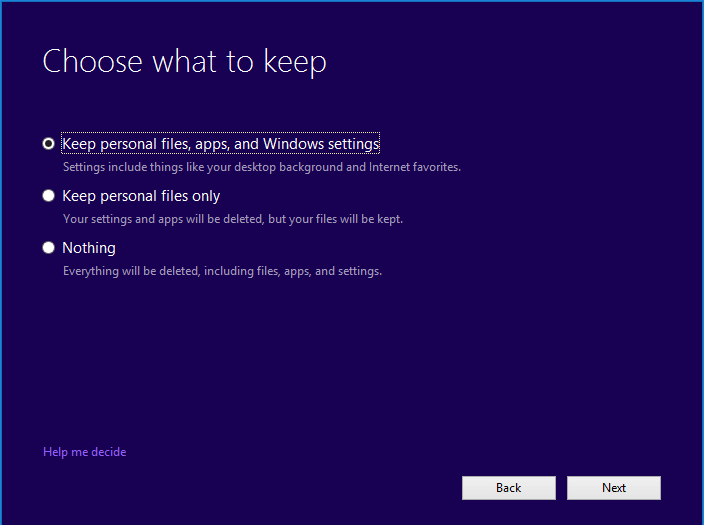
Step 5: Then, click Install button to start the installation.
Back up Windows OS for PC Protection
Now, you have known all the potential fixes for the update is not applicable error. In order to protect your PC and perform a quick disaster recovery, now you should take action to create a system image backup with the professional and reliable backup software for Windows 10/8/7. The backup tool is MiniTool ShadowMaker which has been mentioned in way 5.
In addition to file backup, this freeware can help you to back up system, disk or partition. Now, get it for system image creation.
MiniTool ShadowMaker TrialClick to Download100%Clean & Safe
Step 1: Run MiniTool ShadowMaker Trial Edition to choose the local backup mode.
Step 2: In the Backup window, you see this tool will help back up the system by default. Besides, a destination path is also chosen. Of course, you can change the destination path to your desired one like USB drive, external hard drive, NAS, etc.
Then, hit Back up Now or Back up Later to execute the backup operation immediately or later.
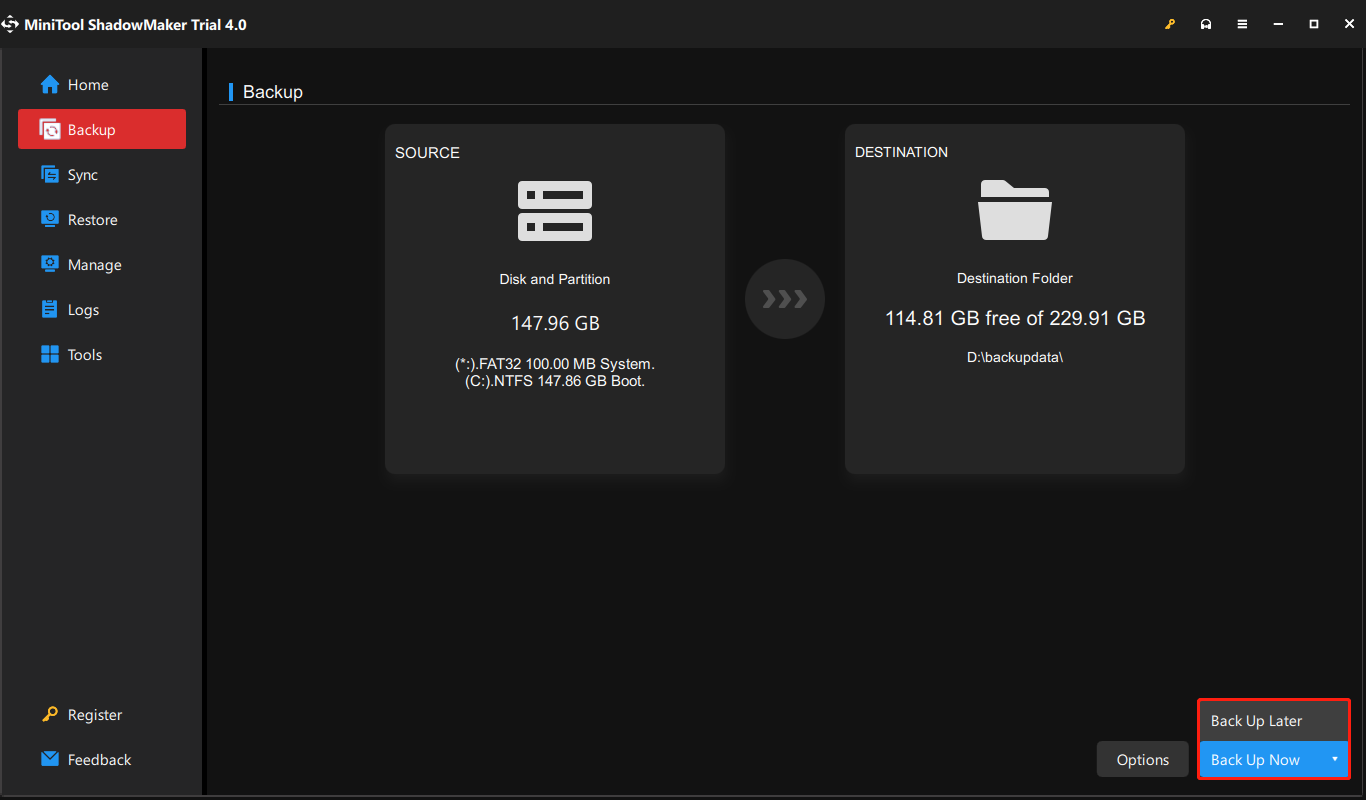
Bottom Line
Receive the error message “the update is not applicable to your computer” in Windows 10/8/7? Now, try the above 9 solutions to fix this issue. To keep your PC safe and avoid accidents, it’s a better way to back up your important files and create a system image with MiniTool ShadowMaker.
If you encounter any question or have any suggestion, please let us know. Just send your idea to [email protected] or leave a comment below.
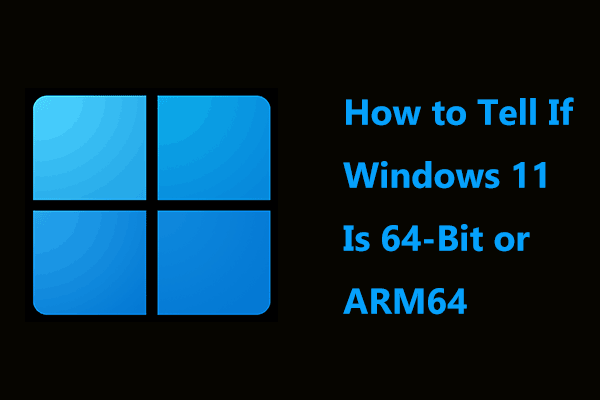
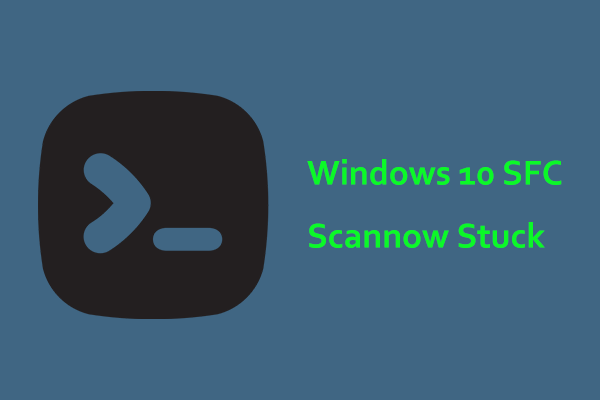
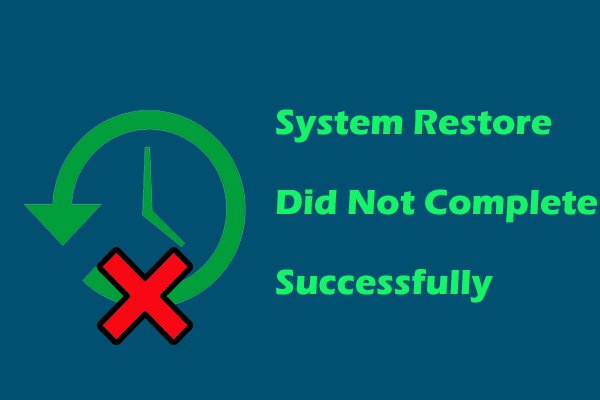
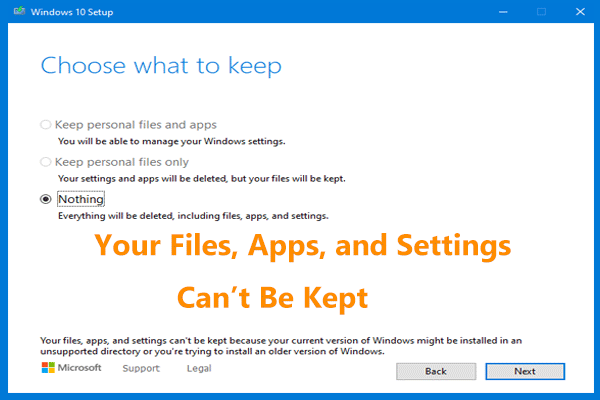
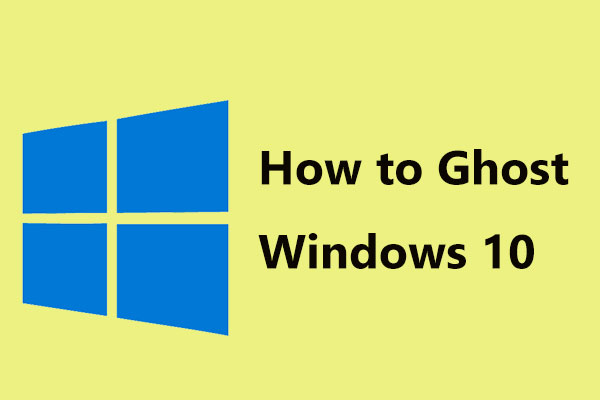
User Comments :